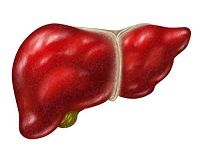Article
Vitamin E Looks Promising, Safe, for Liver Disease
Author(s):
Researchers see promise in vitamin E treatment for NASH.

Could vitamin E be safe and useful in treating nonalcoholic steatohepatitis (NASH)? In an abstract presented at the 2015 Liver Meeting (AASLD) in San Francisco, CA, Kris Kowdley of the Liver Care Network, Swedish Medical Center, Seattle, WA, and colleagues at other institutions reported on their research into that question. They concluded it looks promising.
Vitamin E has been studied for the treatment of NASH in non-diabetic adult patients in the PIVENS randomized controlled trial, they noted. The team presented non-randomized safety/efficacy estimates for vitamin E in diabetic adult NASH patients from the placebo group in their randomized control trial known as FLINT.
That study compared obeticholic acid (OCA) to placebo in diabetic and non-diabetic adult NASH. Results for vitamin E in diabetic NASH were compared to pooled results in non-diabetic NASH derived from the PIVENS vitamin E and placebo groups and from non-diabetics in the FLINT placebo group
Their efficacy measures were histological improvement “defined as > 2 point improvement in NAS with no worsening of fibrosis or NASH resolution”
Safety estimates included incidence of cardiac events and changes in lipid levels.
A total of 250 patients were randomized to vitamin E (n=80) or placebo (n=72) in PIVENS or to placebo (n=98) in FLINT and had both baseline and end-treatment liver biopsies; 53 had diabetes (21%) and 197 were non-diabetic (79%); 105 (42%) received vitamin E and 145 (58%) did not in the PIVENS or FLINT trials.
Vitamin E use was associated with histologic improvement in diabetic and non-diabetic patients but not significantly greater rate of NASH resolution in diabetic or non-diabetic patients. There were no significant safety issues.
They concluded “Vitamin E treatment was associated with similar significant improvement in NASH histology in both diabetic and non-diabetic patients."
Their findings are preliminary but show more trials in diabetic NASH are warranted “to establish whether the promising safety and efficacy profiles for vitamin E in diabetic NASH are confirmed."





